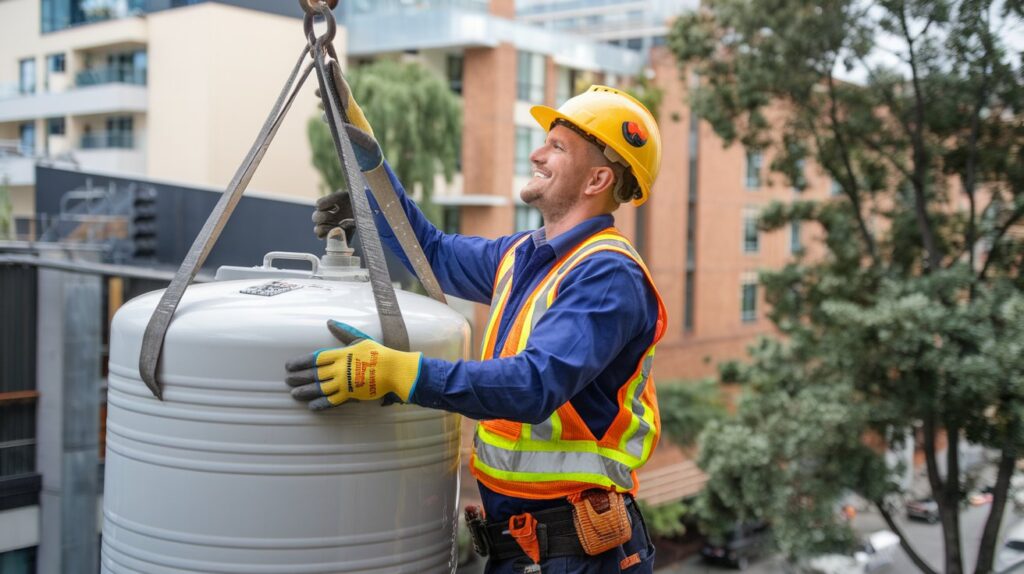Hot water is essential for comfort and convenience in every home, but installing a system requires more than just connecting pipes. In Perth, regulations and safety codes make it vital to have installations carried out by skilled professionals. A qualified plumber ensures the system works efficiently and remains safe for long-term use.
Homeowners benefit greatly when experts handle hot water installations with care and precision. A plumber in Perth considers water pressure, system type, and household needs before beginning work. This level of planning avoids future breakdowns and costly repairs.
Understanding Local Regulations and Safety Standards
Every hot water system installation in Perth must follow Western Australia’s plumbing codes. These codes safeguard households by ensuring the work meets strict safety and environmental requirements. A licensed plumber has the knowledge and certification to comply with these standards. Failure to follow regulations can result in fines and unsafe systems. Qualified plumbers prevent such risks by keeping up to date with changes in legislation and local building rules.
Preparing the Installation Site
Before any system is fitted, the plumber carefully inspects the installation site. This involves checking existing plumbing connections, available space, and ventilation requirements. If gas is involved, the plumber also assesses the gas line capacity. Preparation helps prevent accidents during and after installation. It also ensures the hot water system is positioned in a location that supports performance and safety.
Selecting the Right Hot Water System
Different households need different systems, and plumbers guide homeowners through these choices. Options include electric storage units, continuous flow gas systems, and solar-powered models. Each type has unique requirements that affect installation and running costs. A plumber matches system size with the household’s hot water demand. This prevents shortages while avoiding unnecessary energy expenses.
They also evaluate long-term energy efficiency to help families save on utility bills. Environmental factors such as available sunlight or local energy tariffs are considered when recommending a system. Professional advice ensures the chosen option aligns with both current needs and future household growth.
Key Safety Checks During Installation
Plumbers carry out a series of safety checks while installing hot water systems. These checks protect both the property and the household. Some critical steps include:
- Testing water pressure to ensure the system can handle demand.
- Inspecting gas lines for leaks before connection.
- Ensuring proper ventilation for gas units to avoid carbon monoxide buildup.
- Installing temperature and pressure relief valves to prevent dangerous overheating.
- Securing the system to avoid movement or tipping.
These checks ensure the installation is safe and compliant with all regulations.
Tools and Techniques Used by Plumbers
Qualified plumbers rely on specialised tools and proven techniques for accurate installation. Adjustable wrenches, pipe cutters, gas leak detectors, and thermal insulation materials are part of their essential toolkit. Each tool allows the plumber to perform precise work with minimal disruption. Advanced techniques such as pressure testing and system flushing are also used. These steps guarantee the unit performs efficiently from the first day of use.
Digital diagnostic devices are sometimes employed to detect hidden issues before they escalate. Precision measuring instruments help ensure fittings are aligned correctly and sealed tightly. Protective equipment such as gloves and goggles further supports safe and professional work on-site.
Testing the System After Installation
Once the installation is complete, an expert plumber in Perth performs rigorous testing. They check for leaks, monitor water temperature, and verify consistent pressure across outlets. For gas systems, a combustion test confirms safe and efficient operation. Testing provides peace of mind to the homeowner. It also ensures that the system is ready to deliver reliable hot water without safety hazards.
Educating Homeowners on Safe Use and Maintenance
Plumbers do more than install they also guide homeowners on safe operation. This includes explaining how to adjust temperature settings, when to service the unit, and what warning signs to watch for. Clear instructions reduce misuse and extend the lifespan of the system. Maintenance advice often covers annual inspections and flushing storage tanks. With this knowledge, homeowners can prevent costly breakdowns and maintain energy efficiency.
Responding to Emergency Risks
Qualified plumbers are trained to respond quickly if issues arise during installation. They can shut off water and gas supplies immediately to prevent accidents. Emergency readiness is an important part of keeping households safe. This quick response capability sets licensed professionals apart from untrained workers. It ensures installations remain controlled and risk-free, even under unexpected circumstances.
Their training also equips them to identify early warning signs that could develop into serious hazards. Many professionals carry safety certification that demonstrates their ability to act in high-pressure situations. This expertise reassures homeowners that every stage of the installation is managed with maximum care.
Hot water system installation in Perth demands expertise, compliance, and attention to detail. A qualified plumber in Perth delivers safe, efficient, and durable results through careful planning and execution. These professionals’ skills protect households while ensuring comfort for many years.

